Advocacy
Safety First in the Solid Waste Industry
SWANA has a strong commitment to safety and is determined to help move the waste collection industry off of the federal government’s list of 10 most dangerous jobs and reduce accidents and injuries. These safety initiatives represent part of that effort.
SWANA recognizes that, in the solid waste industry safety matters! #SWANASafety
SWANA Safety Initiatives
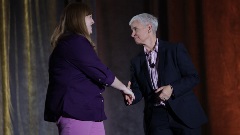
Safety Awards
SWANA Safety Awards honor safety best practices and successes.
Safety First
Safety First is a weekly newsletter with safety tips to share at meetings and for posting around your workplace.
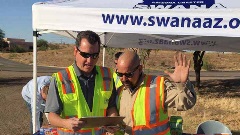
Hauler Outreach
Help share SWANA resources at Hauler Safety Outreach events across North America.
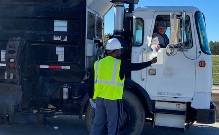
Safety Pledge
Take the SWANA Safety Pledge to show your commitment to protecting yourself and others from harm every day.
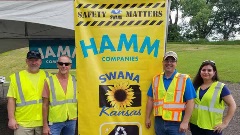
Safety Ambassadors
SWANA Safety Ambassadors serve as safety leaders in all 47 chapters in the United States and Canada.
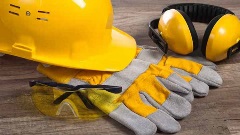
5 to Stay Alive
SWANA has a safety campaign of five simple tips to help solid waste workers stay safe on the job.
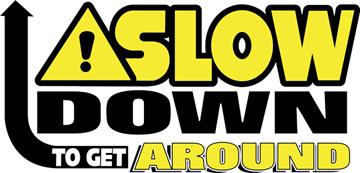
Slow Down to Get Around
Slow Down to Get Around is a national safety campaign reminding motorists to drive more carefully when near waste and recycling collection vehicles.
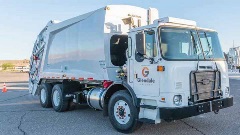
American National Standard for Waste and Recycling
American National Standards (ANSs) applicable to Equipment Technology and Operations for Wastes and Recyclable Materials.
Advertisement
#SWANASafety News and Related Events
Related News
Related Blogs
Latest trends & best practices to keep solid waste workers safe
By: Robert Craggs and Veronica Roof
Regardless of the times, the solid waste and recycling industry is one of the most dangerous industries in the U.S. Add in the threat of the coronavirus pandemic, and the risks are now more complex than ever. To create a safe environment in today's world, safety planning requires a blend of existing best practices to prevent “normal” or traditional hazards, as well as new practices due to the pandemic. Below are some strategies to implement to create safer environments within solid waste and recycling operations.
- Leverage the benefits of technology.
As our industry continues evolving, automation and artificial intelligence (AI) will be increasingly integrated into daily solid waste and recycling operations to bolster efficiency and safety. Injuries, such as back strain or hand puncture, are common while providing collection services. In addition, employees are more likely to be exposed to hazards contained in, on, or near setouts. However, with automated collection, solid waste and recyclables are mechanically lifted into the collection vehicle, greatly reducing the risk of injury and exposure to hazards.
For materials processing post collection, the early removal of contaminants from the targeted stream is critical to offsetting safety risks. Specially designed robots also are being used more frequently to sort materials to reduce the amount of manual labor needed for materials processing and minimize risks. - Stagger shifts and establish cleaning protocols.
Social distancing is critical for the protection of personnel during this COVID-19 pandemic. Within solid waste and recycling operations, it requires significant innovation and adaptation to daily practices. Staggering shifts, implementing a change in protocol for breaks, and limiting in-person transactions as much as possible can help facilitate social distancing. Additionally, any staff who can work from home should be provided with the resources needed to do so.
Stringent cleaning protocols should also be established such as increased sanitizations of workspaces, common spaces, materials processing lines, and collection vehicles. - Review and enforce existing and new service protocols.
Identify solid waste and recycling service practices that reduce risks to personnel. In response to the coronavirus pandemic, some communities have revised solid waste service protocols including requiring all waste to be bagged, enforcement of set-out limits, and temporary suspension of bulk waste collection. In addition, some recycling drop-off sites have implemented new requirements such as limiting the types of materials accepted, requiring appointments for dropping off materials or even temporarily closing facilities to keep personnel safe. This proactive review and enforcement of service protocols reduces safety risks and increases the ability to maintain essential services. - Provide and require personal protective equipment (PPE).
Using PPE protects the body from injury and infection. Ongoing training should be provided to inform and remind employees how to properly use PPE. - Educate public on how to assist with keeping solid waste and recycling personnel safe.
The public should play a role in minimizing risks and promoting the safety of solid waste and recycling personnel. Communicate to the public what they can do to keep the solid waste and recycling personnel safe including placing solid waste and recyclables in designated bins, cans, or carts to minimize contact with personnel. Communities are educating the public via local news, social media, signage on vehicles and outreach campaigns.
These efforts to support the health and safety of solid waste and recycling workers are critical to continuing operations and providing the services our communities depend on. Additionally, such efforts can help improve staff morale, resulting in a consistent workforce dedicated to meeting customer needs.
About the Authors
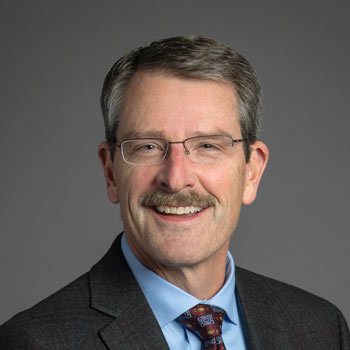 Robert Craggs is a national technical services leader
for solid waste and resource recovery at Burns & McDonnell. He serves as division representative for the Planning and Management Technical Division for the Advisory Board for the Solid Waste Association of North America (SWANA). He also is a board
member for the Recycling Association of Minnesota.
Robert Craggs is a national technical services leader
for solid waste and resource recovery at Burns & McDonnell. He serves as division representative for the Planning and Management Technical Division for the Advisory Board for the Solid Waste Association of North America (SWANA). He also is a board
member for the Recycling Association of Minnesota.

Veronica Roof is a senior compliance specialist at Burns & McDonnell, specializing in solid waste planning, management, and recycling and resource recovery. She serves as the director of the Communication, Education and Marketing Technical Division for SWANA.


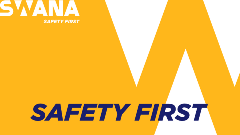
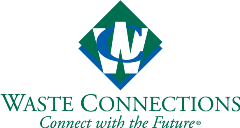





Leave a comment